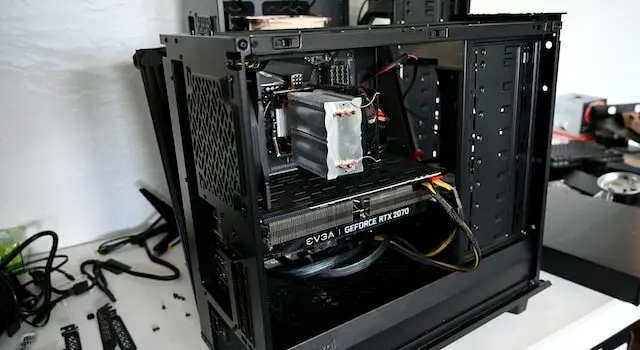With the advancement of technology, the efficiency and compactness of computer components have improved significantly. One notable development is the introduction of fanless PC cases. These cases cool computer components without the use of fans, resulting in a noise-free and efficient computing experience.

Fanless PC cases offer numerous benefits. The most significant advantage is the absence of fan noise. Fans are a loud component in a computer that can be annoying and distracting, especially in quiet environments. Fanless PC cases offer a silent computing experience, making them ideal for use in home theaters, recording studios, and other noise-sensitive environments.
Another advantage of fanless PC cases is their reliability. Fans are mechanical components that can wear out over time, resulting in reduced cooling efficiency and increased noise. Fanless PC cases do not have any moving parts that can fail, making them more durable and reliable.
Fanless PC cases also consume less power than traditional cases. Fans need electricity to run, contributing to the overall power consumption of a computer. Fanless PC cases require no additional power consumption, resulting in lower energy bills and a more environmentally-friendly computing experience.
One of the challenges of using a fanless PC case is maintaining proper cooling. Without fans to move air through the case, it can be difficult to keep components cool. Fanless PC cases use passive cooling techniques, such as heat sinks and heat pipes, to dissipate heat from the components. These passive cooling techniques are highly efficient and require minimal maintenance, making them an excellent solution for those who want a quiet and low-maintenance computing experience.
It is worth considering the type of components that can be used with a fanless PC case. Low-power components are compatible with fanless PC cases, while high-end graphics cards and CPUs may not be suitable. However, there are fanless PC cases available that are specifically designed for high-end components, such as gaming graphics cards and processors.
When choosing a fanless PC case, it is essential to consider compatibility with components, size, and design. Ensure that the case is compatible with your motherboard, graphics card, and other components. Fanless PC cases tend to be larger than traditional cases, so ensure that the case you choose fits in the space where you plan to use it. Finally, consider the design and aesthetics of the case, as they come in various designs to suit different preferences.
In conclusion, fanless PC cases are an excellent option for a quiet, reliable, and efficient computing experience. They offer numerous benefits, including reduced noise, increased reliability, lower power consumption, and efficient cooling. Although they may not be compatible with all components, there are still many options available for those who want a powerful and silent computing experience. Consider compatibility, size, and design when choosing a fanless PC case to ensure you get the best one for your needs.
